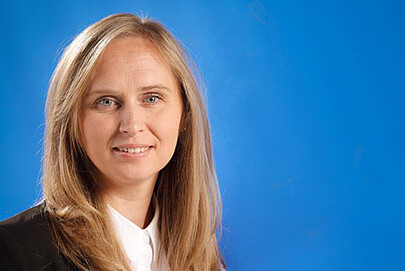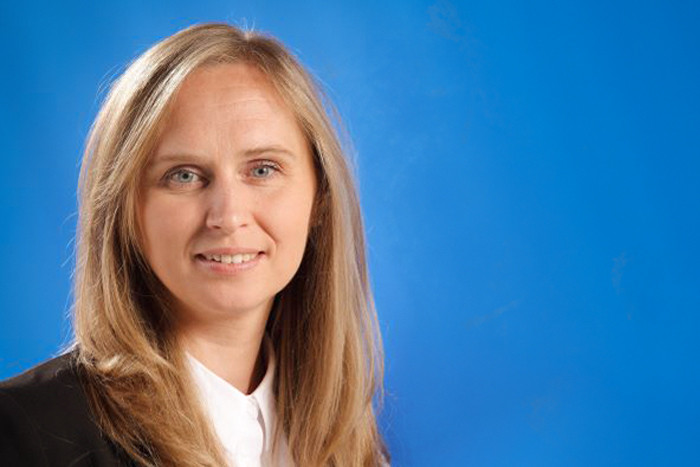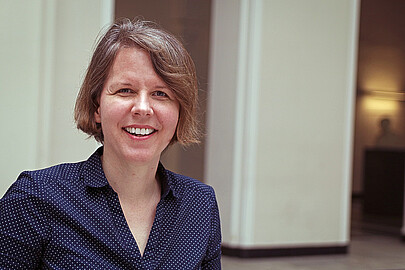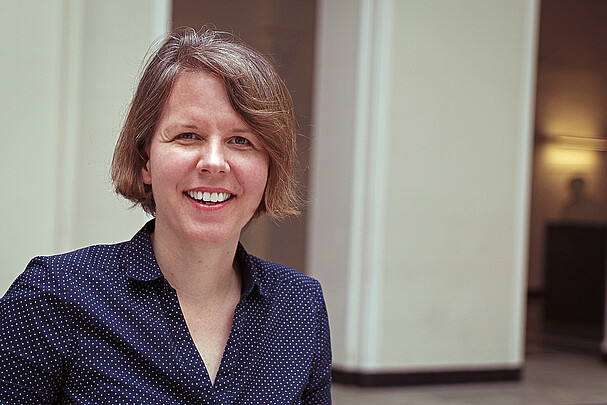Start off your first teaching semester by engaging on a one-to-one basis with experienced members of LUH's teaching staff.
Teaching staff can access a wide range of training and development options. These range from courses offered through the training and qualification programme to special qualification and training options. They can also obtain tailored advice and support for their teaching, as well as information on exchange and networking opportunties, including those at the international level.
The training offers related to teaching are intended for both experienced and new instructors in higher education. Whether you are planning your first teaching session or fine-tuning a lecture you’ve given many times, the personnel development measures aim to help you enhance your skills.
New to teaching
-
Typical developmental phases of a higher-education instructor
Teaching is a complex task. Newcomers often find it scary to switch from being a student to being a teacher. But rest assured, that’s normal and virtually everyone feels like that. Based on Winteler (2004), Böss-Ostendorf and Senft (2014, p. 17 ff.) describe five typical developmental phases that academic instructors pass through during the first years of teaching.
Phase (1) Focus on survival – How will I get through this? Will I be accepted?
At this point, it’s all about you and finding your place in your new role. Core questions new academic instructors ask themselves are: Do the students accept me? And how do I stop people from noticing that I don’t know everything? New academic instructors often suffer from stage fright and worry about concealing any shortcomings from their students.
Phase (2) It’s just about the subject matter – Do I know my subject?
Once they have realised that students aren’t heckling them or seeking to trip them up, academic instructors focus on the content and subject matter. Nevertheless, they are still likely to feel unsure of themselves. During this phase, everything revolves around the transfer of knowledge by the academic instructor.
Phase (3) Is anyone listening to me? – How do I ensure that students are taking the subject matter in?
During this phase, academic instructors realise that students’ attention is not always focused on them or the topic. They realise that their own fixation on the subject matter causes students to lose interest. This is an unnerving moment but an important one because it charts the course for change. Academic instructors gain more confidence while talking about their own subject area, and the focus begins to shift to the teaching environment and the study group itself. Now they need to ask themselves: What means and methods can I use to improve contact with students?
Phase (4) What do you need to understand the subject matter? – How can I ensure that students grasp the subject matter?
This phase is about understanding and supporting student learning processes. Experienced academic instructors pay attention to how the students learn, focusing more on the quality of instruction and less on the quantity of subject matter. They no longer find it so difficult to transfer so much knowledge in such a short period of time.
Phase (5) This is what you need to find out for yourself – How can I support students to think and learn independently?
In this phase, academic instructors are no longer so interested in quantity, but rather in quality and those eureka moments that occur during the learning experience. They have realised that students learn best when they discover things themselves. This phase involves looking at how to help students think for themselves and learn independently. Students are perceived as groups. Communication, methods and multimedia tools are cleverly applied to achieve learning objectives.
-
For a successful start at teaching: questions for reflection
Development of basic teaching expertise
What's the status quo where my teaching expertise is concerned?
- I’ve been a student and base my teaching on this experience.
- I already have some teaching experience as a student tutor.
- I already have experience as a group leader in other fields unrelated to higher education.
- I have studied the literature and empirical results on learning and teaching issues.
What literature and materials could be helpful to get me off to a good start?
Support
- Which colleagues in my working environment can help me when I start my job?
- What support can I receive from the staff responsible for modules and degrees?
- To what extent would the mentoring programme for academic teaching staff be useful in helping me settle in? Detailed information can be found on the staff portal.
- Which training, advice and support offers could be useful for me now or in the future?
-
Reading recommendations
Ken Bain (2004): What the Best College Teachers Do. Harvard UP.
John Biggs & Catherine Tang (2011): Teaching for Quality Learning at University. 4th Edition. OUP.
L. Dee Fink (2013): Creating Significant Learning Experiences: An Integrated Approach to Designing College Courses. 2nd Edition. Jossey-Bass.
John Hattie (2013): Visible Learning and the Science of How We Learn. Routledge.
Eric Mazur (2013) Peer Instruction. A User's Manual. Pearson.
Paul Ramsden (2003): Learning to Teach in Higher Education. 2nd Edition. Routledge.
Film tip
Claus Braband (2006): Teaching teaching & understanding understanding. From a student learning perspective. "Teaching Teaching & Understanding Understanding" is a 19-minute award-winning short film about teaching at university and higher-level educational institutions. It is based on the constructive alignment theory developed by Prof. John Biggs. The film delivers a foundation for understanding what a teacher needs to do to make sure all types of students actually learn what the teacher intends. https://ttuu.itu.dk/
-
Materials
- TU München: Hochschuldidaktische Handreichungen
Die Reihe "Hochschuldidaktische Handreichungen" beinhaltet komprimierte Hilfestellungen und Anregungen zu bestimmten Aspekten der Lehre. (in German) - Ruhr-Universität Bochum: Lehre laden. Downloadcenter für inspirierte Lehre. Hg. v. Interne Fortbildung und Beratung (ifb). (in German)
- TU München: Hochschuldidaktische Handreichungen
Feedback on your own teaching
Develop by talking to others about teaching
Who to contact in the human resources development section


30167 Hannover


30167 Hannover


30167 Hannover










































